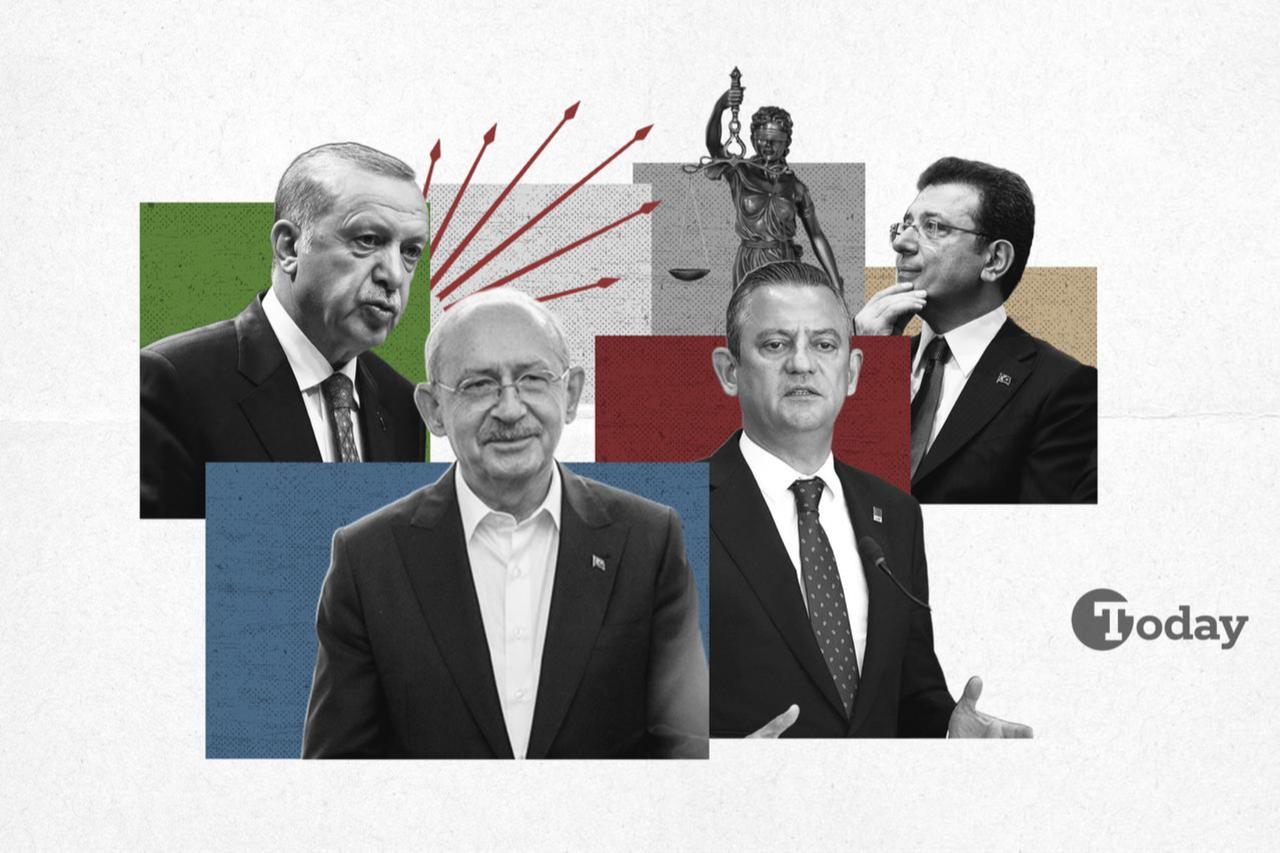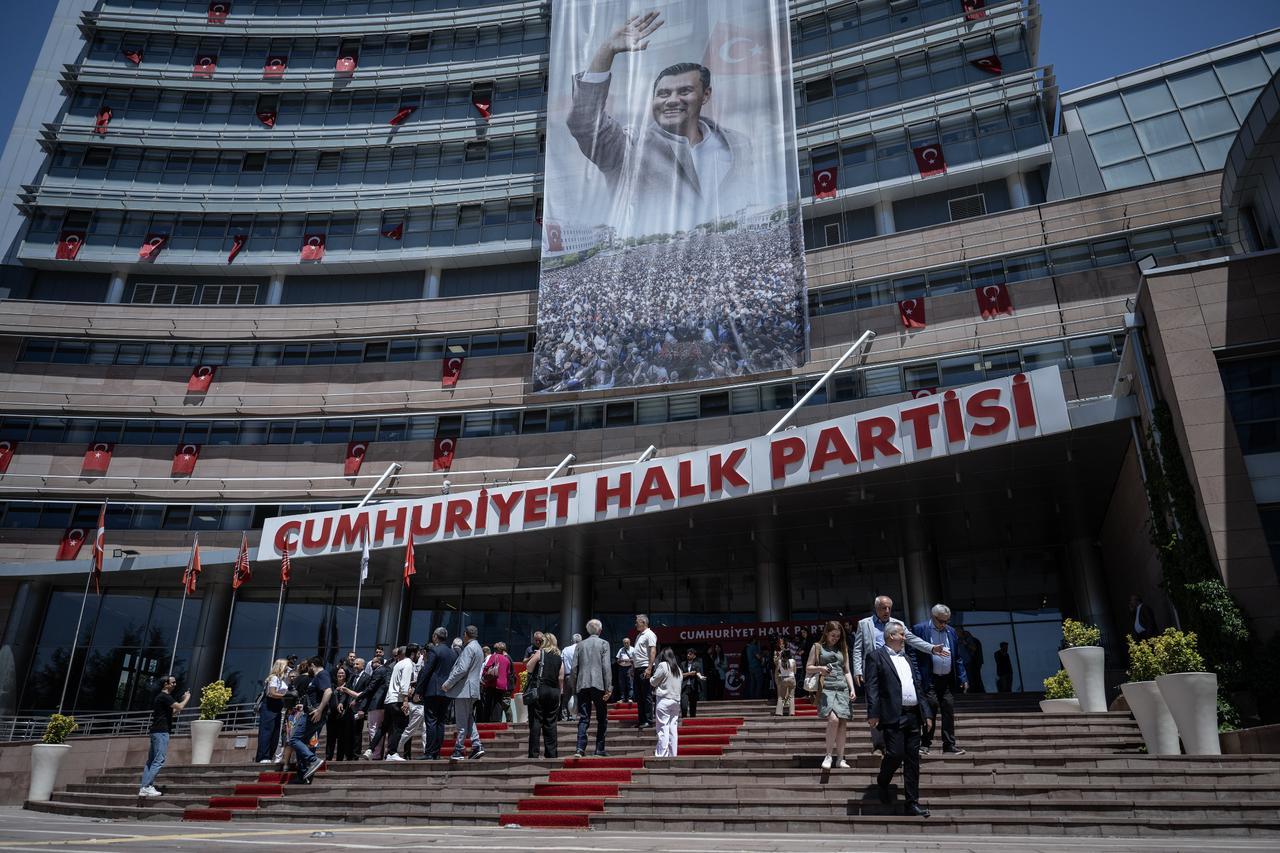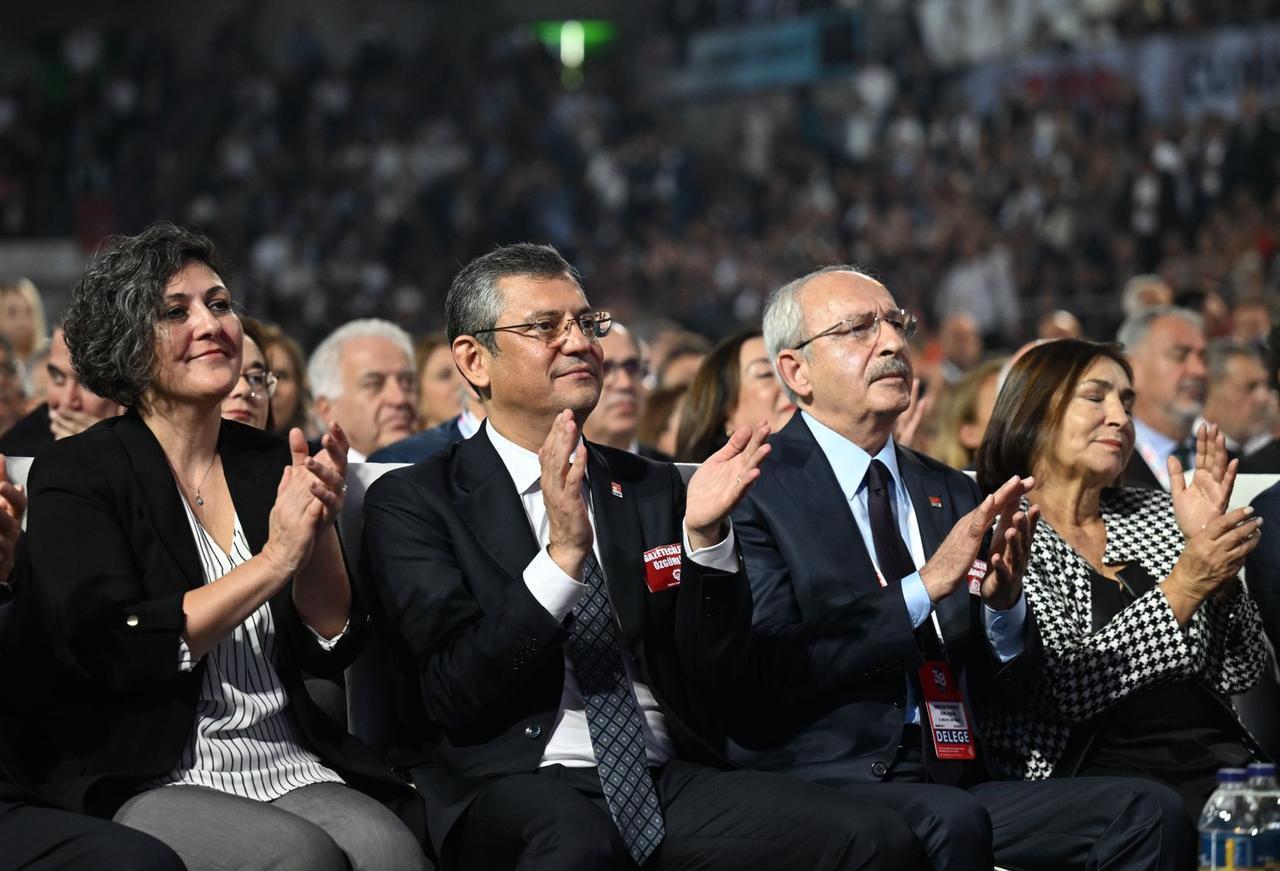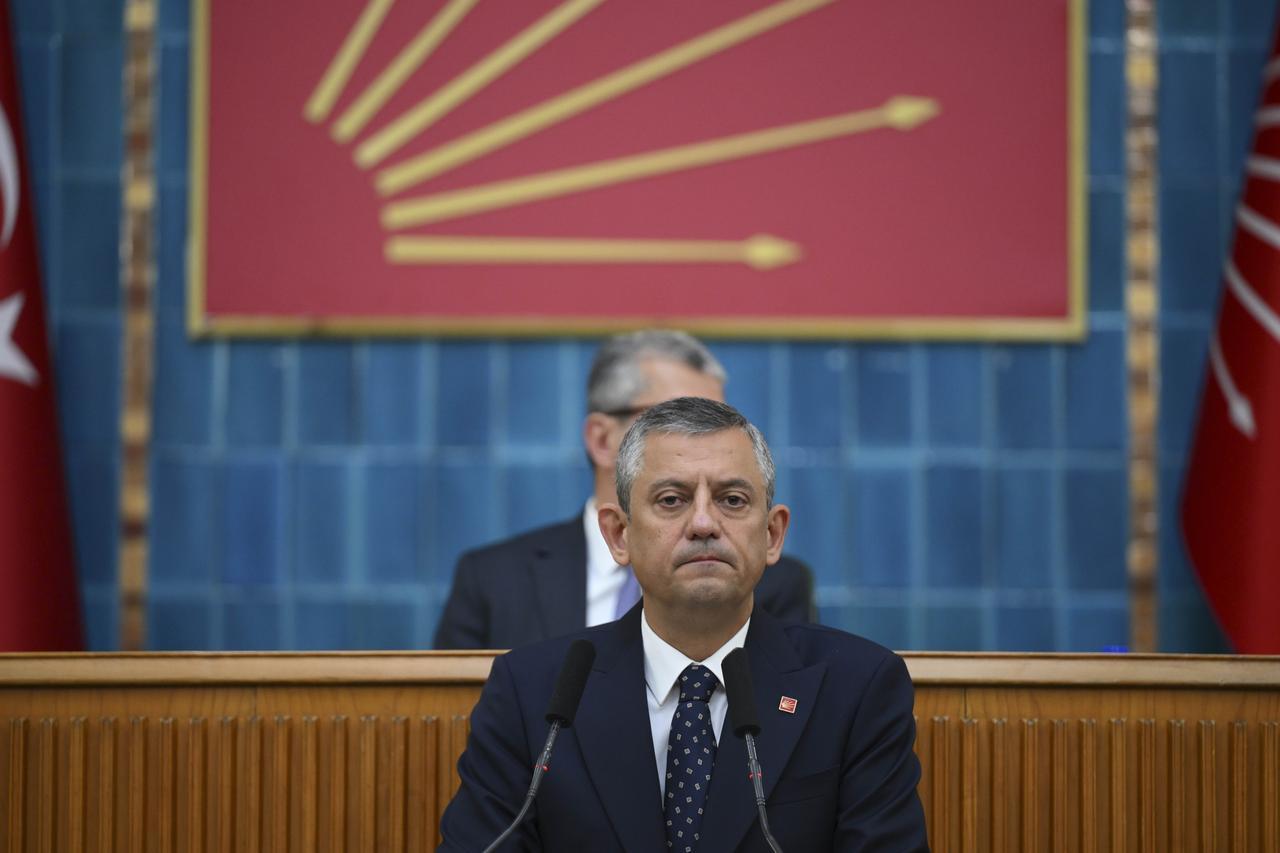
The highly anticipated court session set to decide the fate of the 2023 Republican People’s Party (CHP) congress on Monday, June 30, has been postponed to September 8. On social media, the narrative has crystallized into a single blunt accusation: “Kilicdaroglu was all along an Justice and Development Party (AK Party) project.”
Over the past 25 years, a peculiar pattern has emerged within Türkiye’s main opposition party, CHP: nearly every leader or presidential candidate has, at some point, been accused—often by their own voter base—of secretly aligning with the ruling AK Party. From Deniz Baykal to Kemal Kilicdaroglu, from Muharrem Ince to Ekmeleddin Ihsanoglu, each figure has faced suspicions of being a “secret AK Party supporter” when political tides turned against them.
These accusations have largely originated within the opposition itself, often as a means to discredit rivals or rationalize repeated electoral defeats. Muharrem Ince, the opposition’s candidate in the 2018 presidential election, was branded “AK Party-lite” after his loss—until he aligned more closely with party leadership, shifting the focus of criticism back to Kilicdaroglu.
Before that, Kilicdaroglu was viewed by some as enabling Erdogan by sidelining more competitive figures like Ekrem Imamoglu or Mansur Yavas in the 2023 elections.
This cycle of internal scapegoating has done more than deepen factionalism—it has sidelined challengers like Muharrem Ince and undermined credible candidates by casting doubt on their loyalties. As a result, potentially strong contenders have struggled to gain voter confidence. To rebuild that trust, the CHP must confront its own shortcomings in party democracy and transparency.
Blaming individuals has not resolved the party’s structural problems—nor will it. In the end, it’s a dynamic that not only fractures the opposition but, intentionally or not, serves the interests of the ruling coalition.

Kilicdaroglu’s candidacy in the 2023 presidential election was controversial from the start. He polled well below other possible opposition candidates but secured the nomination by sidelining alternatives. His heavy defeat was a breaking point, triggering a leadership change in the CHP. Ozgur Ozel took over, bringing fresh energy and a more collective style of politics. Under his leadership, the party saw success in the 2024 local elections, retaining major municipalities like Istanbul and Ankara.
Kilicdaroglu’s leadership marked a shift within the CHP toward a different party identity, seeking to distance the party from its traditional nationalist-secularist image and appeal to a wider cross-section of voters. Over more than a decade at the helm, this approach created its own internal bloc—supporters, organizers, and figures who rose through the ranks under his tenure.
Despite the heavy electoral defeat in 2023 and his formal exit from leadership, this bloc did not disappear overnight. On the contrary, it retained significant influence within party structures and resurfaced just as the broader opposition was beginning to regroup. Rather than stepping aside in the wake of the party’s efforts to reset itself, elements of the Kilicdaroglu camp have sought to reassert themselves—complicating the CHP’s transition and reopening unresolved internal divisions.

Labeling rivals as "secret AK Party supporters" is not merely a rhetorical habit within the CHP—it serves a structural function. Each time a leader falters or challenges the dominant party line, they are cast as crypto-loyalists to Erdogan. This framing offers a convenient explanation for internal dysfunction and legitimizes the purging of dissenters. But when overused, it becomes a self-fulfilling prophecy: real opposition is weakened, internal debate is stifled, and the ruling regime gains room to maneuver.
During the 2023 presidential race, Kilicdaroglu’s supporters actively worked to block the candidacy of Muharrem Ince, arguing that a divided opposition would only benefit the ruling party. In response, Ince openly accused Kilicdaroglu of being "a man of the palace"—a phrase suggesting covert alignment with the ruling establishment.
These mutual accusations left a lasting mark on the CHP’s voter base. Rather than offering clarity or unity, the conflict deepened internal mistrust. Today, many CHP supporters remain divided over which figure, if any, can genuinely represent an alternative to the status quo. The lingering fallout from 2023 continues to shape perceptions of legitimacy and loyalty within the party.
Kilicdaroglu’s current role, returning with visible support from pro-government media despite having lost his mandate, has made him the latest figure in this ongoing cycle.

The current controversy surrounding Kemal Kilicdaroglu’s attempted return has revived memories of how previous leadership transitions unfolded within the CHP. Deniz Baykal, a former party leader, was widely regarded as a democrat committed to fair political competition—even removing barriers that had restricted Erdogan’s political activity in earlier years.
Baykal’s departure in 2010 came under extraordinary circumstances. While he formally stepped down, widespread speculation has long suggested a private video scandal was the real reason behind his exit. Now, similar suspicions are resurfacing regarding Kilicdaroglu—this time in reverse. Some within the party claim he is being targeted or removed through coordinated pressure rather than open contestation, echoing past claims of internal manipulation or blackmail.
One such moment was the nomination of Ekmeleddin Ihsanoglu as the joint opposition candidate in the 2014 presidential election. Ihsanoglu, a respected diplomat and former secretary-general of the Organization of Islamic Cooperation, was considered by many CHP members ideologically distant from the party’s secular roots. His selection faced criticism from party traditionalists, who argued the decision alienated the CHP base and blurred the party’s identity.
At the time, the move was seen as pragmatic. But in retrospect, some critics have linked it to a broader theory: that Kilicdaroglu’s role was not to advance opposition interests but to ensure a truly oppositional figure was never elevated—whether on international platforms or in domestic politics. Although speculative, such interpretations have gained renewed traction amid current attempts to reinstate him.
A court hearing set for September 8 will decide whether the 2023 party congress that replaced Kilicdaroglu was legitimate. The outcome could either reaffirm the CHP’s current course or roll it back entirely, returning the party to leadership many now view as compromised.
Regardless of the legal ruling, the broader dynamic remains: within the CHP, each leader eventually faces accusations of aligning with Erdogan—often due to internal politics, sometimes because of state influence. Until that cycle is broken, Türkiye’s opposition risks undermining itself before it can effectively challenge for power.